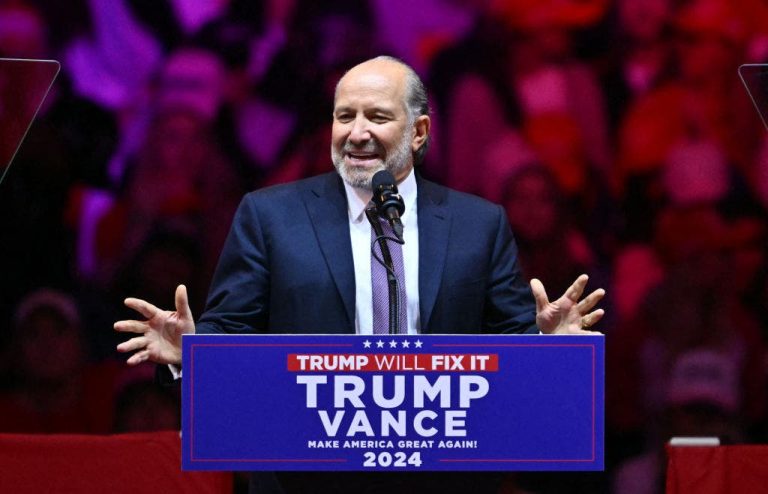
Crypto trading, also known as cryptocurrency trading, is the act of buying and selling cryptocurrencies with the goal of profiting from price fluctuations. Cryptocurrencies are digital or virtual currencies that use cryptography for security. Unlike traditional currencies, they are not controlled by any central authority, such as a government or bank. Instead, they operate on a decentralized network called a blockchain.
Featured Partners
Legacy
Over 2 Million Investors Trust Mudrex for Their Crypto Investments
Security
Mudrex is Indian Govt. recognized platform with 100% insured deposits stored in encrypted wallets
Fees
Enjoy zero crypto deposit fees and industry’s best fee rates.
Multiple Award-Winning Broker
Listed On Deloitte Fast 50 index, 2022 Best Global FX Broker – ForexExpo Dubai October 2022 & more
Best-In-Class for Offering of Investments
Trade 26,000+ assets with no minimum deposit
Customer Support
24/7 dedicated support & easy to sign up
Cryptocurrencies:
220+ crypto coins available to trade
Users:
10 million plus registered users
Please invest carefully, your capital is at risk
How Crypto Trading Works
1. Choose a Crypto Exchange: The first step is to select a reputable cryptocurrency exchange platform. These platforms allow you to buy, sell, and trade various cryptocurrencies. Some popular exchanges include Coinbase, Binance, and Kraken.
2. Create an Account: You’ll need to create an account on the chosen exchange by providing personal information and verifying your identity.
3. Fund Your Account: Once your account is verified, you can deposit funds into it. This can be done using traditional currencies like USD or EUR, or even other cryptocurrencies you may already own.
4. Buy Cryptocurrencies: With funds in your account, you can now purchase cryptocurrencies. You can buy them directly with fiat currency or trade other cryptocurrencies for them.
5. Trade Cryptocurrencies: This is where the actual trading takes place. You can trade cryptocurrencies in various ways:
- Spot Trading: Buying and selling cryptocurrencies at their current market price.
- Margin Trading: Borrowing funds from the exchange to increase your buying power, allowing you to potentially make larger profits (but also larger losses).
- Futures Trading: Speculating on the future price of a cryptocurrency without actually owning it.
- Options Trading: Using contracts that give you the right (but not the obligation) to buy or sell a cryptocurrency at a specific price on a specific date.
6. Store Your Cryptocurrencies: Once you’ve purchased cryptocurrencies, you’ll need to store them securely. This can be done using a cryptocurrency wallet, which can be either a hardware wallet (a physical device) or a software wallet (an app or online platform).
Popular Crypto Trading Strategies:
- Day Trading: Buying and selling cryptocurrencies within a single trading day.
- Swing Trading: Holding positions for a few days or weeks to capitalise on short-term price movements.
- Long-Term Investing: Buying and holding cryptocurrencies for an extended period, often years, with the expectation of long-term growth.
Understanding Crypto Market Hours & Time Zones
Cryptocurrency markets are unique in that they operate 24/7, 365 days a year. Unlike traditional stock markets, there’s no specific opening or closing time. This global nature of the crypto market means that trading opportunities are available around the clock.
Why is the Crypto Market Always Open?
- Decentralization: Cryptocurrencies operate on decentralized networks, meaning they’re not controlled by a single entity or government. This allows for continuous trading as there’s no central authority to dictate market hours.
- Global Participation: Traders from all over the world can access cryptocurrency exchanges and participate in trading, leading to round-the-clock activity.
Why is this 24/7 nature important?
- Constant Liquidity: With traders active around the clock, there’s always liquidity in the market, making it easier to buy or sell cryptocurrencies at any time.
- Volatility: The 24/7 nature can amplify price volatility, as news and events can impact the market at any time, regardless of traditional business hours.
- Trading Opportunities: This constant activity presents opportunities for traders to capitalize on price fluctuations, whether it’s through day trading, swing trading, or long-term holding.
How Time Zones Affect Crypto Trading:
While the crypto market is global, different time zones can influence trading activity and market sentiment. Here’s a breakdown of the major trading regions:
- Asia: This region, particularly Japan, South Korea, and China, has a significant impact on the market, especially during their trading hours.
- Europe: European markets, particularly London, Frankfurt, and Paris, play a crucial role in shaping global sentiment and can drive significant price movements.
- North America: The US market, especially New York, is a major player in the crypto world. Its trading hours often coincide with increased volatility and trading volume.
Factors Influencing the Continuous Crypto Trading Availability
Several factors contribute to the continuous availability of crypto trading:
Decentralization:
- No Central Authority: Crypto markets aren’t controlled by a single entity, allowing trading to occur 24/7.
- Global Participation: Due to the internet’s global reach, traders from around the world can access exchanges at any time.
Technological Infrastructure:
- Blockchain Technology: The underlying technology of cryptocurrencies ensures secure and transparent transactions, enabling continuous trading.
- Exchange Platforms: Advanced trading platforms facilitate round-the-clock trading with various tools and features.
Market Demand:
- 24/7 Trading Culture: Many traders prefer the flexibility of trading anytime, driving demand for continuous market availability.
- Global Economic Events: News and events from different time zones can impact crypto prices, leading to daily trading opportunities.
Automated Trading:
- Trading Bots: Automated trading systems can execute trades based on predefined strategies, enabling continuous market participation.
Innovative Financial Products:
- DeFi (Decentralized Finance): This sector offers 24/7 access to various financial services, including lending, borrowing, and trading.
While these factors contribute to continuous trading, it’s important to note that certain events or technical issues might temporarily disrupt trading on specific exchanges. However, the overall trend is towards increasing availability and accessibility in the crypto market.
Featured Partners
Legacy
Over 2 Million Investors Trust Mudrex for Their Crypto Investments
Security
Mudrex is Indian Govt. recognized platform with 100% insured deposits stored in encrypted wallets
Fees
Enjoy zero crypto deposit fees and industry’s best fee rates.
Multiple Award-Winning Broker
Listed On Deloitte Fast 50 index, 2022 Best Global FX Broker – ForexExpo Dubai October 2022 & more
Best-In-Class for Offering of Investments
Trade 26,000+ assets with no minimum deposit
Customer Support
24/7 dedicated support & easy to sign up
Cryptocurrencies:
220+ crypto coins available to trade
Users:
10 million plus registered users
Please invest carefully, your capital is at risk
What is the Best Time to Trade Cryptos?
The best time to trade cryptos depends on your trading style and the specific market conditions. Here’s a breakdown of the different time frames:
1. Day Trading:
- Early Morning (6:00 AM – 9:00 AM IST):
- Overlaps with the active hours of the US market.
- Higher trading volume and increased price volatility.
- Ideal for day traders looking for quick profits.
- Late Evening (9:00 PM – 12:00 AM IST):
- Overlaps with the opening of European markets.
- Increased trading activity and potential for price movements.
- Suitable for day traders who want to capitalize on the overlap between US and European markets.
2. Swing Trading:
- Beginning or End of the Month:
- Increased market activity due to monthly reports and financial settlements.
- Potential for significant price movements.
- However, higher volatility can also increase risk.
3. Long-Term Investing:
- Any Time:
- Long-term investors focus on the underlying fundamentals of cryptocurrencies and the overall market trend.
- They are less concerned with short-term fluctuations and focus on holding their investments for an extended period.
Additional Considerations:
- Market Activity: Crypto markets are most active during traditional work hours in major financial centers like New York and London.
- Volatility: Cryptocurrencies are known for their high volatility, which can create both opportunities and risks.
- News and Events: Major news events, such as regulatory announcements or technological breakthroughs, can significantly impact the crypto market.
- Risk Tolerance: Consider your risk tolerance and adjust your trading strategy accordingly.
NOTE: Crypto trading is highly speculative and carries significant risks. Before trading, it’s crucial to conduct thorough research, understand the market dynamics, and implement sound risk management strategies.
Frequently Asked Questions (FAQs)
What time of the day is crypto most traded?
Cryptocurrency markets operate 24/7, so there’s no specific “peak time” globally. However, trading activity tends to be higher during the overlap of major market hours. This typically occurs during:
- Asian and European Market Overlap: Late evening to early morning (IST)
- European and US Market Overlap: Early morning to late afternoon (IST)
These periods often see increased liquidity and volatility, making them potentially more favorable for trading.
Do crypto prices go down on weekends?
Cryptocurrency prices can fluctuate at any time, including weekends. While trading volume may be lower on weekends, it doesn’t necessarily mean prices will go down. Factors like news events, market sentiment, and technical analysis influence price movements.






